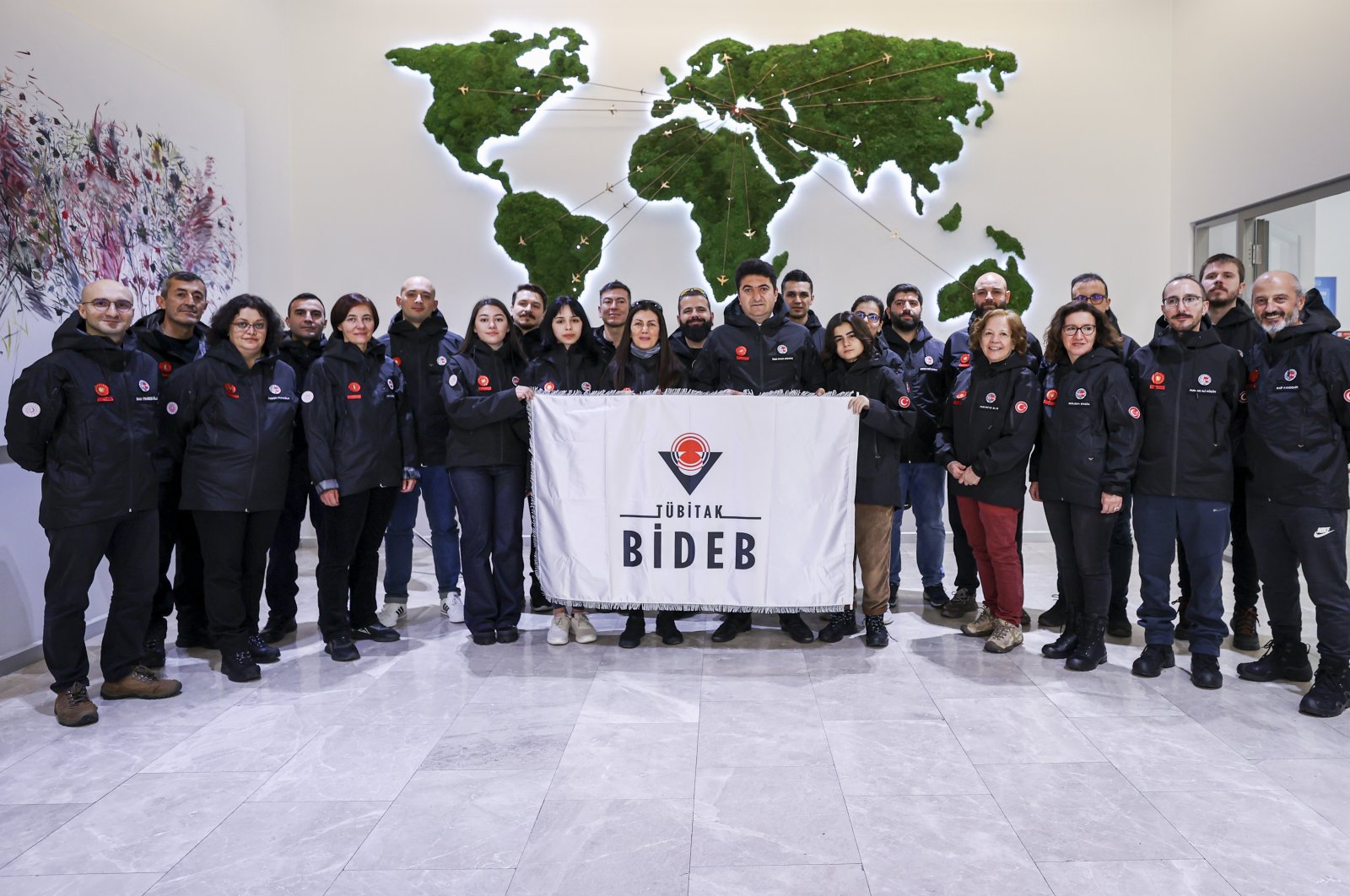
TÜBİTAK's new journey to discover and carry out studies on a wide range of topics, from atmospheric sciences to microplastics sets off to Antarctica from Istanbul
The Seventh National Antarctic Science Expedition carried out under the auspices of the Presidency and coordinated by TÜBİTAK MAM Polar Research Institute (KARE), sets off from Istanbul for Antarctica with the participation of 19 scientists.
Turkish scientist professor Director TUBITAK MAM Polar Research Institute (PRI) Burcu Özsoy who has undertaken numerous types of research with six scientific expeditions to the Antarctic, embarked on a new journey to discover and carry out studies on a wide range of topics, from atmospheric sciences to microplastics.
The mission is a part of Antarctic studies carried out under the coordination of the Scientific and Technological Research Council of Türkiye (TÜBİTAK) MAM Polar Research Institute. Besides 19 Turks, two Ecuadorian and a Colombian scientist will take part in the expedition, which will also have three high school female students for the first time. Türkiye's Ambassador to Santiago will accompany the team on the expedition.
High school students from Antalya – Azra Ayşe Bıçakcı, Hilal Başak Demirel, and Zeynep İpek Yanmaz – who had won the "High School Students Pole Research Projects Competition" organized by TÜBİTAK Scientist Support Program Presidency within the framework of TEKNOFEST for the first time, participated in the trip.
The team leader professor Dr. Burcu Özsoy stated that work on the trip started 11 months ago, saying: "The climate and conditions of the place determine our work. If the weather is within our planned framework, we board the ship bound for Antarctica. There will be 19 Turkish scientists and three foreign scientists on the expedition."
"We will carry out 18 different scientific projects in total. The most interesting part of this expedition is the participation of our female students who applied for the 2204 C TUBITAK Polar Research Project call and won the first position."
"They will have a different program of visiting peaks of some mountains and meeting international scientists besides working in science laboratories. On the other hand, Türkiye's Ambassador to Santiago will accompany us on the field. Atmospheric sciences will be at the fore of these studies. Geological and Microplastics studies will be conducted. We have a wide range of study programs such as volcanic structures, earth sciences, and ecosystem studies," he added.
Emphasizing that there is a meteorology base established by Türkiye in Antarctica and weather is forecasted with data obtained from devices there, Özsoy added: "The teams of the General Directorate of Maps, the Department of Navigation, Hydrography and Oceanography, the General Directorate of Meteorology are also with us. We will also undertake the tasks of collecting data, maintaining equipment, and preparing for the next year by making seabed maps."
Explaining the project, one of the selected high school students, Zeynep İpek Yanmaz said that the biological plastic they obtained from the acorn of an oak tree dissolves in as little as 45 days instead of the traditional plastics that dissolve in nature in 450 years. Explaining that the plastic they produce is 20 times more durable than the market bags currently used, they first presented the project to the jury in Giresun and were selected for physical sciences major followed by an interview in Samsun at Teknofest Black Sea, where they secured the first position and won a trip to Antarctica.
"It is a great opportunity to visit science bases in different countries and work in laboratories," she shared, adding that the team is very supportive and provides training on 'How to survive' in Antarctica both psychologically and physically. "We are taking the bioplastics we produced with us to observe whether the dissolution time there fits with the experimental data," she highlighted.
After immigration and passport procedures at Istanbul Airport's VIP terminal, the team joined the science expedition and set off to Santiago, Chile, as the first stop en route to Antarctica.
